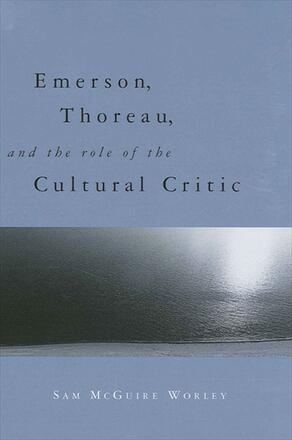
Emerson, Thoreau, and the Role of the Cultural Critic
Alternative formats available from:
Reinterprets important works of the social criticism of Emerson and Thoreau as being based in defense of community.
Description
Emerson, Thoreau, and the Role of the Cultural Critic offers an important reinterpretation of the central works of two key figures in American letters. Drawing upon the work of several important contemporary thinkers—including Michael Walzer, Alisdair MacIntrye, Charles Taylor, and Stanley Cavell—Sam McGuire Worley argues that the mature thought of Emerson and Thoreau is deeply imbedded in community, and that their best social criticism is immanent rather than transcendent in character. Their encounters with specific historical figures such as Daniel Webster, Theodore Parker, and John Brown reveal a political philosophy that cannot easily be labeled liberal or conservative, and a meticulous reconsideration of their political writings and their encounter with abolitionism show both to be working with as complex and ironic a vision of self and community as can be found in antebellum American letters.
Sam McGuire Worley is Assistant Professor in the English Department at Arkansas Tech University.
Reviews
"I like the thickness, patience, and detail of Worley's firmly historicized readings of major texts by Emerson and Thoreau. He moves immediately and stays relentlessly with the big political and ethical questions at stake in these two major figures. The book offers fresh and very thorough readings of major texts within a meticulously documented historical and scholarly context." — Cary Wolfe, author of The Limits of American Literary Ideology in Pound and Emerson
"This book is a real contribution to Emerson studies. It is of perpetual importance to arrive at a fruitful, credible grasp of Emerson's rigor and originality as a thinker—important to Emerson studies and to fields to which Emerson is pertinent, a reach to which I set no bounds within philosophy, literary studies, and cultural studies." — Stanley Cavell, author of The Senses of Walden: An Expanded Edition